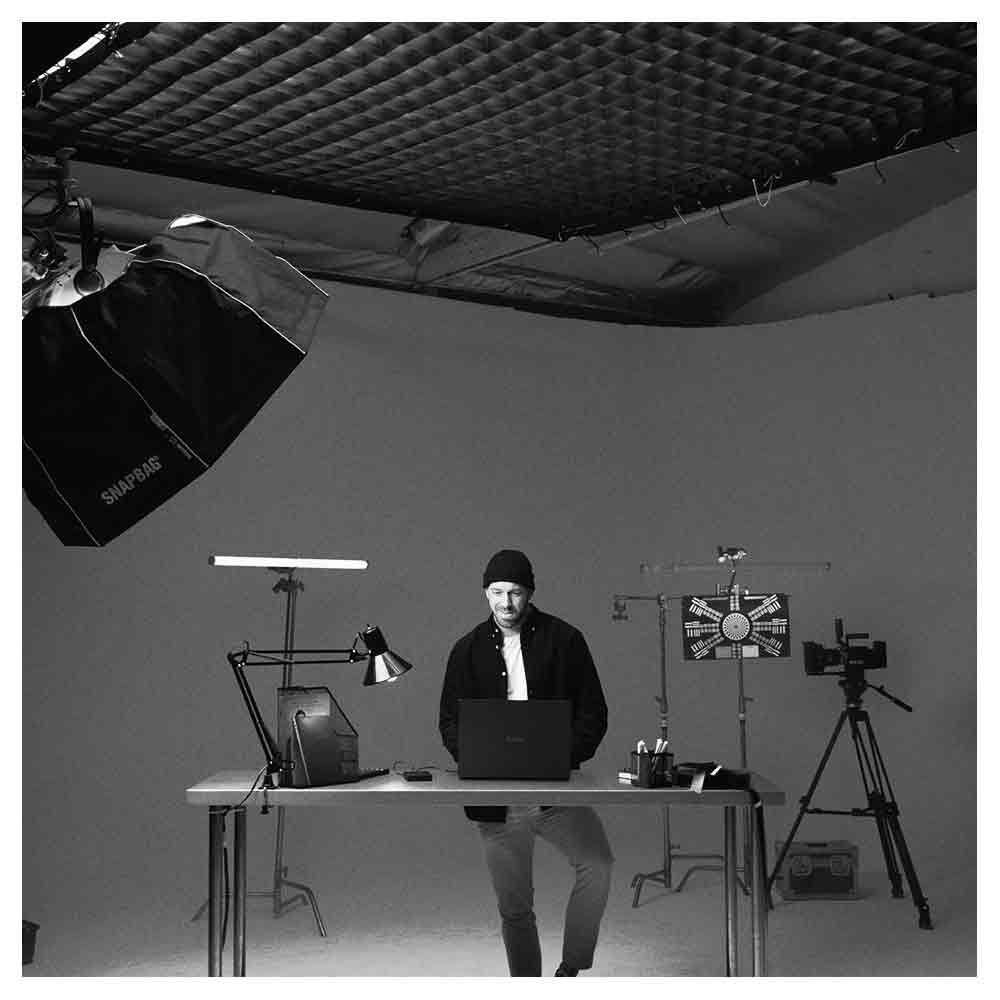How To Sell A Screenplay? I Discovered A New Way!
I approached the sales process of working in the creative industry with the wrong mindset for a long time until I started researching why my approach wasn't working. And not so long ago, I accidentally stumbled upon a new way to spark Hollywood interest in a film project!
In this article, I wanted to share my discoveries with you so you can discover if this selling your script to Hollywood approach is something interesting to explore and potentially save yourself a lot of time, money, and energy trying to pursue something that might never come to fruition.
I have to acknowledge that I have yet to try these new sales approaches myself. But, I believe this is such a solid theory that I consider this to be the only way forward if you want to succeed in selling your screenplay in the 21st-century entertainment industry!
Table of contents:
How To Sell A screenplay The old-School way
Before we look at my discoveries of selling your screenplay to Hollywood film studios in the 21st century, let’s first look at how selling film scripts to Hollywood used to be done.
Selling scripts through networking events
The old-school way of selling your screenplay to Hollywood mainly relied on physical networking in Los Angeles and New York and trying to get contact information from the people closely related to industry professionals high up in the Hollywood decision-making tree.
Even today, the first search results in Google mostly talk about trying to physically land your script on the desk of a Hollywood studio executive by working with an agent or manager, networking your ass off in business offices and events, moving to LA, or participating in screenwriting contests.
Unfortunately, approaching selling your screenplay this old-fashioned way is unrealistic and time-consuming.
I believe it still works like this to some extent, and there are success stories of people who do it this way. But for new and upcoming talent, it makes no sense to follow this path.
The people working at the production companies you want your script to read are very busy. They don’t know you, trust you, or have time to read a 120-paged script, so it’s doubtful they will give their millions in financial investment.
Selling movie scripts via film festivals
Another route many filmmakers take in selling their scripts and films to Hollywood is the film festival circuit.
A film festival is essentially a networking event where unreleased projects are screened to an audience of movie enthusiasts, filmmakers, distributors, production companies, and studio executives interested in reading scripts, discovering new talent, and making film distribution deals.
Most filmmakers taking this route create a short film, enter the festival’s film competition, and try to win prizes to gain eyeballs on their project with the hopes of turning their short story into a feature film or TV series pilot.
But as you can imagine, winning prizes and finding a good investment deal via film festivals can be very tough.
You’re dependent on meeting the right industry professionals, hoping you’ll beat the festival’s competition, win the right awards, and negotiate a profitable deal without losing all your creative rights to the original scripted material.
Especially when you’re in the middle of a coronavirus pandemic with zero film festivals, the chances of landing such a deal are nihil.
Over the years, I’ve seen a lot of filmmakers who can’t find distribution deals for their short film projects, and eventually, their short films, Hollywood scripts, dreams, and ambitions end up on a dusty shelf, and they release their projects online for free.
Different times ask for a different approach
Because I grew up analyzing the films and careers of today’s Hollywood legends, I always believed this traditional route was the only way to selling a script because those people succeeded this way.
But we live in a different day and age today! We have other tools that the filmmaking dinosaurs and historical figures like Quentin Tarantino, Martin Scorsese, Michael Mann, John Hughes, Christopher Nolan, Steven Spielberg, Spike Jonze, and Tim Burton didn’t have when they started their careers. In my opinion, we must realize that different times require a different approach.
So, if you want to succeed in selling your screenplays to a Hollywood studio or a big streaming platform like Netflix, Amazon, HBO, or Disney, you can’t compare your career path to those who succeeded many years ago.
We must utilize modern tools to stand out from the crowd and make our projects eventually see the light of day!
The business side of filmmaking
To better understand why certain films get made, some find distribution deals, and others receive significant financial studio investments, we have to dive deeper and talk about the money and business side.
The business of the filmmaking business
In 2021, I forced myself to read 50 books about marketing, sales, mindset, investments and building a successful (online) business. These books provided me with many thoughtful new insights.
They taught me to approach working in this industry from an entirely different perspective, that of an entrepreneur instead of a freelance filmmaker.
It made me realize that you build a self-sustainable operating business as an entrepreneur. But by operating as a freelancer, I created a job for myself. I was selling my time for money, but I wasn’t running my company as a business owner.
I was too focused on the craft and how beautiful a particular project had to become instead of focusing on the business side of filmmaking. But creating something that looks artistically brilliant without making revenue is not a sustainable business model!
The business side of the business is where I believe most filmmakers, my past self included, get it wrong. It’s called the film BUSINESS for a reason.
It’s a business industry with an artistic element, which most of us seem to forget when it comes to pitching and selling story ideas. It looks like we forget it’s about selling a business plan to business people.
Films are always a means to an end
I didn’t realize at the time that a film project, whether a commercial, a music video, a fashion film, a movie, a TV Series, or whatever project, always serves as a means to an end. There are always higher (business) goals at stake.
For example, a brand wants to sell a particular product or service and therefore wants to create a commercial to promote it and boost sales. Music artists want to promote their songs, and a music video can help them achieve that goal.
A TV station wants to reach a massive audience to charge big money on ads for commercial breaks. An engaging, entertaining TV show is their tool to achieve that goal.
Movie studios want appealing and entertaining films, so many people will want to see them, and the studios can make a profit. That’s essentially the business model.
It’s all about return on Investment
Another harsh reality for us creators, who earn a living from creating the most beautiful moving imagery for a project, is that when we pitch an idea to an investor, they don't care about how beautiful our film projects will become.
They don't care what kind of unique tools we'll use or how this remarkable story, based on our experience, has never been told before.
An investor only cares about making a return on their investment (ROI) and how the project can help them achieve their goal. It's a business model: investing Y to receive X times Y in return.
When someone asks you to invest your hard-earned money into their new cryptocurrency coin, you probably don't do that to support the artistic brilliance of the blockchain.
You do that because you want to make a return on your investment. You want to make money with your money, and it works the same for filmmaking!
Present a business proposal, not a creative script
All those fancy animated logos you see at the beginning of every movie are the studios and distributors that invested money into the project. These companies invest millions in the hopes of making a return on their investment.
Therefore, if we want to catch the attention of potential investors and successfully receive significant funding for our next film project, we have to make a proper business proposal that is highly likely to make a great return on the investor's investment!
But how do you do that? How can you ensure that investing money in your film project will make a great return on someone's investment?
Let's dive a little deeper…
Three ingredients of a script that sells
The problem with filmmaking is that it’s an extremely slow process. It’s not like you buy a crypto coin and make a profit somewhere in the following hours. So many stars need to align to get the film production circus going and finally produce a product that everybody is satisfied with.
It’s about eliminating risk for an investor
When you pitch an idea and ask for financial investment, especially for longer format productions like feature films, you’re basically asking investors to part with their money for a few years with the artificial promise they will (hopefully) see it back with a profit! Now that’s a huge financial risk!
Just like you would probably want to eliminate the risk of losing your money as much as possible when you consider investing your money into something, a film studio or financier does precisely the same.
They want to know if the project ticks a few boxes to tell if your project is suitable for making a return on their investment and minimizing the risk of financial loss.
Houston Howard to the rescue
Now, this is where I will start discussing my recent discoveries with you. On one of my favorite YouTube channels, Frame Courage, I recently came across two very long interviews (interview #1 and interview #2) with Houston Howard—an American producer, author, speaker, and thought leader in the entertainment industry with a unique approach to storytelling.
After watching these interviews, I was blown away by Houston's vision! Suddenly all the puzzle pieces fell into place in my mind, and I decided to buy his book: 'You're Gonna Need a Bigger Story: The 21st Century Survival Guide To Not Just Telling Stories, But Building Super Stories.'
I highly recommend reading this book to master the art of writing, telling, and selling stories in the 21st-century entertainment industry!
Below, I will discuss three pillars Houston considers essential to writing stories that sell!
1. A successful script needs market Awareness
Unfortunately, in today’s film industry marketplace, great story ideas are not the things that sell.
Having an audience is what sells. Therefore, the first risk-eliminating factor Houston Howard talks about is 'market awareness.'
A script needs market awareness
Market awareness means that people are already familiar with your story, characters, or arena and will be more likely to watch your project. For example, many people already knew, read, or were fans of the Harry Potter books before the movies were made.
Market awareness means people will be more likely to buy a ticket at the cinema, take a Netflix, HBO, or Disney subscription plan, and therefore help the investor make a return on their investment.
This is why so many films are based on books or actual events and why Hollywood's new concept goldmine is popular podcasts!
Studios also want prominent household actors and filmmakers attached to their projects. They bring an audience and act as quality insurance for the audience and the studio.
Creating market awareness
You probably also understand that writing an original script without market awareness is not an interesting option for an investor.
A project with no market awareness will need an insane amount of money for marketing to make the market aware of the project's existence.
But that doesn't mean you can't write an original story. You must create market awareness while writing and developing your story.
For example, you can start a podcast about a project-related subject, write a (comic) e-book that you can sell on Amazon, start a YouTube channel about something project-related, or create a (board)game!
It's about finding simple, cheap, and easy-to-produce, effective ways to build a potential audience for your project by using people in your network with particular skills to help you create and develop that market awareness for your project.
2. A successful script is build around a Big Story World
In general, the blueprint for a movie is a story of an ordinary person in extraordinary circumstances.
While most screenwriters focus most of their energy on shaping the ordinary person's journey, Houston proposes to do it differently by shifting focus to the extraordinary circumstances, the so-called 'Storyworld.'
This theory is based on the idea of building a narrative universe so big and exciting that you have infinite story potential taking place in that Storyworld.
For example, 'Future Earth' in the Matrix, 'The Wizarding World' in Harry Potter, and 'The Galaxy' in Star Wars.
These story arenas are so big that you can take out the main characters of your initial story and realize there are still thousands of other characters and stories left to exploit! The arena, filled with interesting characters, will keep people hungry for more stories!
Now, that's exciting material for an investor! It suddenly means your project's possibilities are scalable! And don’t think, "I have to create one of those lousy franchises, right?!" You don't!
You have to create a consumer brand with infinite amounts of story possibilities!
3. Sell your script to Hollywood with a transmedia approach
The third pillar in creating a story that sells is where Houston excels, taking a transmedia approach. With transmedia, you expand your story on different mediums.
I don't mean adapting your story and telling the same thing in different ways, but expanding your story. So you're not just telling a story with film, but also using (video) games, books, audio… the possibilities are endless!
For example, you write a cheap-to-produce (comic) e-book that takes place in your Storyworld. You end it with a cliffhanger and create a series of short films that picks up where you left your (comic) book.
While you’re producing the short films, you start a podcast and build your market awareness for your feature film that picks up the storyline from where you left off with the short films.
Then you create a music album where the lyrics of the songs tell a story about what happened with the characters after a particular event in the movie.
In a video game, you touch upon a side story of a specific character or object from the film. In the subject-related podcast, you hide weekly riddles to award prices, whereby the answers are cheat codes you can use inside the video game.
Done right, all these different stories stand alone and don't necessarily need each other. But once you start consuming all these various forms of media together, you begin to see how the stories are connected.
The different mediums elevate each other, making people who were solely interested in the (video)game or book, also interested in listening to the music album and eventually watching the movie. It allows you to create different entrances to your one-of-a-kind Storyworld!
Taking this transmedia approach allows you to grow and engage an active fan-based community, extend the life of your project, generate multiple income streams while the movie is still in development, and tap into additional markets!
Now that's a game-changer for attracting Hollywood investors!
Final Thoughts On How To Sell A screenplay
Wrapping up, I believe we, the filmmakers, must let go of doing things the old-fashioned way and compare our career paths to those that became successful many years ago.
Don’t live like a starving artist
As first-time writers, we can’t just think we can invest one or two years of our lives writing a screenplay while living like starving artists. Then expect someone to give us their contact details, read our masterpieces, and assume they will immediately invest millions into our projects.
If we want to find proper funding for our projects, we have to start taking the business side of the film business seriously. Instead of presenting a story, present a business plan.
Offer the potential investors something with market awareness, a big Storyworld with a transmedia approach, and a high potential to make a return on their investment.
I truly believe that creating something with the Houston Howard approach in the back of your mind will help you build multiple revenue streams, fund the project, pay for your time writing the film script, and eventually build a consumer brand that is so much bigger than just a two-hour movie.
Embrace the Houston Howard Approach
Of course, there will always be a level of traditional networking required if you’re looking for financial investments whereby you can still take the route of the film festival circuit and meet the right people in places like Los Angeles. But having a business case ready for that time will strengthen your sales pitch!
The more you’ve already created before that time, the more likely you’ll be able to retain creative control during the continuation of the journey, and the less likely you’ll lose all your creative rights to the studio.
I’m 100% sure that if you take this approach, you can tell the original stories you want and make a living while doing it!
Frequently Asked Questions About How To Sell A Screenplay (FAQs)
How do I begin the process of selling a screenplay?
Step 1: Write a script. Ensure it adheres to industry standards and resonates with potential buyers.
Step 2: Prepare a one-sheet with a synopsis and your contact details.
Step 3: Write a compelling query letter introducing your script to agents and producers.
What should I know about today’s market when selling my screenplay?
Today's market values originality and marketability. Genres like comedy, drama, and mystery are popular. Stay informed about what's selling by attending industry events and networking with industry professionals.
Do I need an agent to sell my screenplay?
While not strictly necessary, having an agent can open doors, especially at the studio level. Agents have contacts and expertise in negotiating deals. For first-time screenwriters, an agent can significantly streamline the selling process.
How can I find jobs or opportunities to pitch my screenplay?
Networking: Engage with like-minded people at film festivals, industry events, and online forums.
Cold Query Emails: Send query letters to agents, producers, and development executives who might be interested in your genre.
Screenwriting Contests: Major contests can attract attention from industry executives if you win or place highly.
What are the key elements of a great script?
A great script has well-developed characters, a compelling plot, and a clear theme. It should speak to the reader both emotionally and intellectually. Make sure it's formatted correctly and free of errors—first impressions count!
How do I approach production companies or producers?
Research: Identify production companies that have produced similar films.
Contact: Use professional query letters and follow up with phone calls or emails. Include your one-sheet.
Networking: Meeting people at industry gatherings can lead to introductions.
What are some common challenges in selling a screenplay?
Market Fit: Ensuring your screenplay fits a marketable genre or trend.
Access: Gaining access to the right people in the industry.
Persistence: It often requires persistent effort and multiple rewrites to sell a script.
Any tips for first-time screenwriters trying to sell their screenplay?
Learn from Others: Connect with other writers and learn from their experiences.
Stay Resilient: Rejection is part of the process. Use feedback constructively to improve your script.
Keep Writing: The more scripts you write, the better your odds of success.
How important is it to attend film festivals and industry events?
Very important. Such events are fantastic for networking, learning about the industry, and meeting agents, producers, and other writers. They can also be fun and inspirational.
What’s the best piece of advice for screenwriters looking to sell their screenplay?
Be patient and persistent. Selling a screenplay can be a long process, but hard work, a bit of luck, and the right connections can make all the difference. Always continue to hone your craft and develop new projects.
Remember, each screenplay sold is a stepping stone in your screenwriting career. Good luck, and keep pushing your creative boundaries!
How do I protect my screenplay before sending it to producers or agents?
Register your screenplay with the Writers Guild of America (WGA) or a similar body in your country. This provides a dated record of your work, offering some protection against plagiarism.
What should I include in a query letter?
A query letter should be concise and include:
A logline: A one-sentence summary of your screenplay.
A brief synopsis: Highlight the plot and main characters.
Your contact information: Make sure they know how to reach you.
A personal touch: Mention why you're contacting this particular agent or producer.
How do I make my screenplay stand out to potential buyers?
Unique voice: Ensure your screenplay has a distinctive voice and fresh perspective.
High stakes: Incorporate high stakes to keep the story compelling.
Professional polish: Make sure your screenplay is as polished as possible—consider professional script coverage or editing to refine dialogue, pacing, and structure.
What's the importance of feedback in the screenplay selling process?
Feedback is crucial. It helps you identify weaknesses and improve your script before presenting it to buyers. Join a writing group, attend workshops, or hire a script consultant to get constructive criticism.
How can I use online resources to sell my screenplay?
Listing Services: Websites like The Black List or InkTip allow you to post your screenplay for industry professionals to review.
Social Media: Use platforms like LinkedIn to build relationships with industry insiders.
Screenwriting Blogs: Engage with the community through comments and guest posts to raise your profile.
What's a spec script, and why might it be important?
A spec script is a screenplay written without the promise of payment, based on the writer's speculation that it will be sold. Writing spec scripts is a common way for new writers to demonstrate their abilities and break into the industry.
How can I leverage film festivals beyond just attending?
Screenings: If your script is produced, getting it screened at festivals can attract attention.
Pitch Competitions: Many festivals offer pitch competitions where you can present your ideas to panels of industry professionals.
Workshops: Participate in workshops to refine your pitching skills and learn from established screenwriters.
What role does genre play in selling my screenplay?
Genre significantly influences a screenplay's marketability. Knowing which genres are currently popular with studios and independent producers can guide what you choose to write or how to pitch your existing scripts.
How can developing multiple projects benefit me as a screenwriter?
Developing multiple projects demonstrates versatility and increases your chances of success. If a producer isn’t interested in one project, having others ready to pitch shows you're proactive and dedicated.






























